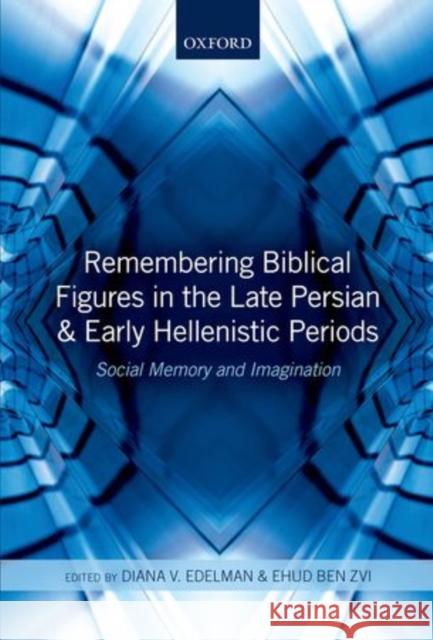Remembering Biblical Figures in the Late Persian and Early Hellenistic Periods: Social Memory and Imagination » książka
Remembering Biblical Figures in the Late Persian and Early Hellenistic Periods: Social Memory and Imagination
ISBN-13: 9780199664160 / Angielski / Twarda / 2013 / 528 str.
Remembering Biblical Figures in the Late Persian and Early Hellenistic Periods: Social Memory and Imagination
ISBN-13: 9780199664160 / Angielski / Twarda / 2013 / 528 str.
(netto: 490,11 VAT: 5%)
Najniższa cena z 30 dni: 499,45
ok. 30 dni roboczych.
Darmowa dostawa!
Social memory studies offer an under-utilised lens through which to approach the texts of the Hebrew Bible. In this volume, the range of associations and symbolic values evoked by twenty-one characters representing ancestors and founders, kings, female characters, and prophets are explored by a group of international scholars. The presumed social settings when most of the books comprising the TANAK had come into existence and were being read together as an emerging authoritative corpus are the late Persian and early Hellenistic periods. It is in this context then that we can profitably explore the symbolic values and networks of meanings that biblical figures encoded for the religious community of Israel in these eras, drawing on our limited knowledge of issues and life in Yehud and Judean diasporic communities in these periods. This is the first period when scholars can plausibly try to understand the mnemonic effects of these texts, which were understood to encode the collective experience members of the community, providing them with a common identity by offering a sense of shared past while defining aspirations for the future. The introduction and the concluding essay focus on theoretical and methodological issues that arise from analysing the Hebrew Bible in the framework of memory studies. The individual character studies, as a group, provide a kaleidoscopic view of the potentialities of using a social memory approach in Biblical Studies, with the essay on Cyrus written by a classicist, in order to provide an enriching perspective on how one biblical figure was construed in Greek social memory, for comparative purposes.











